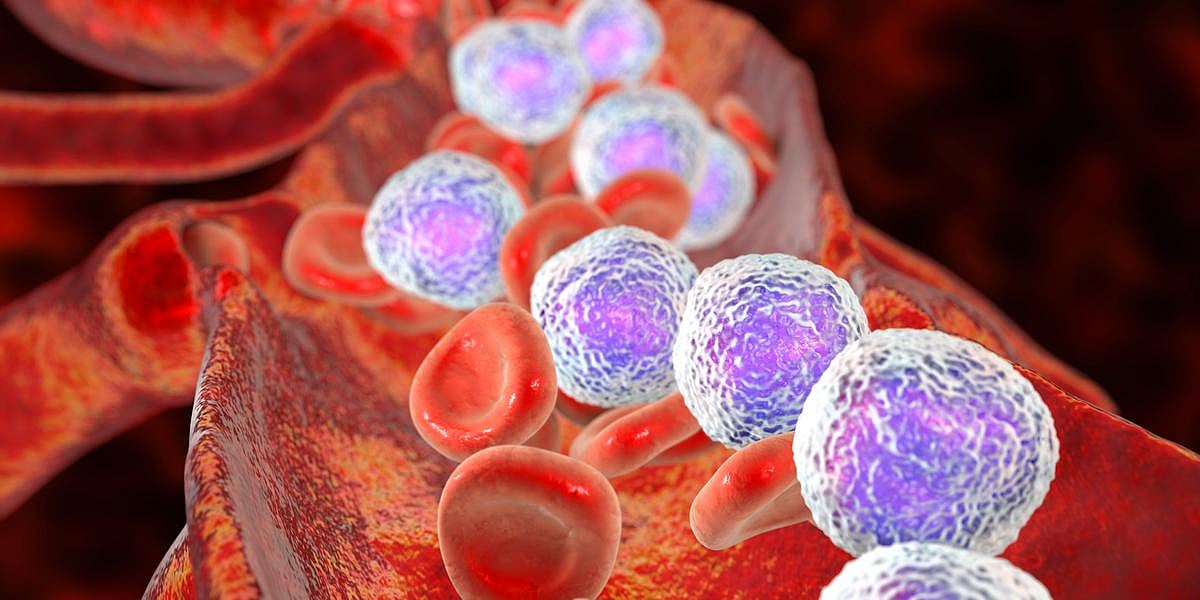Sequential molecular measurable residual disease monitoring, coupled with guided treatment, beneficial for patients with NPM1 and FLT3 mutations
By Elana Gotkine HealthDay Reporter
WEDNESDAY, May 14, 2025 (HealthDay News) — Molecular monitoring of measurable residual disease (MRD), coupled with guided treatment, contributes to improved survival for patients with newly diagnosed acute myeloid leukemia (AML) with NPM1 and FLT3 mutations, but it does not improve overall survival in the entire patient population, according to a study published online in the May issue of The Lancet Haematology.
Nicola Potter, Ph.D., from King’s College London, and colleagues examined whether altering treatment based on MRD results can improve survival in patients aged 16 to 60 years with newly diagnosed AML enrolled in two trials. Patients were screened for molecular markers suitable for disease monitoring, including NPM1 mutations and fusion genes. Those with a marker were randomly assigned to receive sequential molecular MRD monitoring during treatment and for three years after or to standard clinical care with no molecular monitoring (289 to MRD monitoring and 144 to no monitoring in the AML17 trial and 136 to MRD monitoring and 68 to no monitoring in the AML19 trial).
The researchers found that overall survival at three years was 70 and 73 percent in patients in the monitoring and no-monitoring groups, respectively, with a median follow-up time of 4.9 years. No difference was seen in overall survival in a meta-analysis of the two studies. In patients with both NPM1 and FLT3 internal tandem duplication (ITD) mutations, overall survival at three years was 69 and 58 percent in the monitoring and no-monitoring groups, respectively (hazard ratio, 0.53). In patients with NPM1 mutations without FLT3-ITD or those with fusion gene transcripts, no difference in survival was seen by random assignment.
“There is still so much to learn about how best to treat this fast-moving form of cancer,” study coauthor Nigel Russell, M.D., from Guy’s and St. Thomas’ NHS Foundation Trust in London, said in a press release. “We hope our research offers a new approach to detecting if a patient is at risk of relapse and offers hope to patients suffering from this disease.”
Several authors disclosed ties to the biopharmaceutical industry.
Copyright © 2025 HealthDay. All rights reserved.








